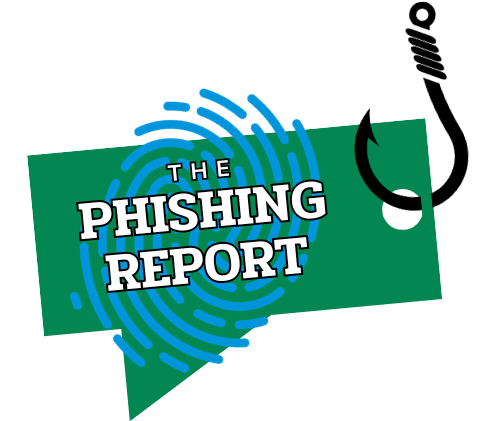Implementing robust cloud security tactics is essential for protecting your data from ever-evolving cyber threats. Thorough risk assessments help fortify your cloud infrastructure, identifying vulnerabilities for proactive measures. Strong encryption protocols like AES and TLS guarantee data security, while multi-factor authentication enhances access control. Regular security audits and incident response planning bolster preparedness. Educating employees on security best practices is necessary. Each tactic plays a critical role in safeguarding your digital assets. Find out more about the detailed strategies for securing your cloud environment.
Key Takeaways
- Mitigate risks and threats to cloud infrastructure effectively.
- Safeguard data with strong encryption protocols.
- Enhance security with multi-factor authentication.
- Ensure compliance through regular security audits.
- Prepare for incidents with well-defined response plans.
Importance of Cloud Security
Understanding the critical nature of cloud security is imperative for safeguarding sensitive data and ensuring uninterrupted business operations. Conducting a thorough risk assessment is the first step in fortifying your cloud infrastructure. By identifying potential vulnerabilities and threats, you can proactively address security gaps and mitigate risks before they escalate. This strategic approach allows you to allocate resources effectively and prioritize security measures based on the extent of risk each threat poses to your organization.
Security awareness among all employees is paramount in maintaining a robust cloud security posture. Educating your staff on best practices, such as using strong passwords, recognizing phishing attempts, and understanding data handling protocols, can greatly reduce the likelihood of security breaches. Regular training sessions and simulated phishing exercises can help reinforce security policies and cultivate a culture of vigilance within your organization.
Incorporating security awareness into your company’s culture fosters a proactive stance towards cybersecurity, empowering employees to become the first line of defense against potential threats. By investing in thorough risk assessments and promoting security awareness initiatives, you can enhance the resilience of your cloud environment and safeguard your sensitive data from malicious actors.
Data Encryption Strategies
When securing your cloud data, utilizing strong encryption protocols, implementing robust key management systems, and ensuring data integrity verification are vital steps to safeguard your information. These strategies help protect your sensitive data from unauthorized access and maintain its confidentiality, integrity, and availability in the cloud environment.
Incorporating these encryption tactics forms a solid foundation for your cloud security framework.
Strong Encryption Protocols
Implement strong encryption protocols to safeguard your data effectively against unauthorized access and guarantee secure communication channels. Utilize encryption standards to guarantee the confidentiality and integrity of your data during transmission.
- Utilize AES (Advanced Encryption Standard) for robust data encryption.
- Implement TLS (Transport Layer Security) to secure data in transit.
- Use RSA encryption for secure key exchange.
Key Management Systems
For effective data protection, deploying robust Key Management Systems is essential in establishing secure data encryption strategies. These systems are critical for managing cryptographic keys used to encrypt and decrypt sensitive data in the cloud.
By implementing Key Management Systems, you guarantee secure access to encrypted information while adhering to encryption standards. The systems help in generating, storing, distributing, and rotating encryption keys, ensuring that only authorized users can access the encrypted data.
Key Management Systems play an essential role in safeguarding data integrity and confidentiality by providing a centralized platform for key operations. It’s imperative to choose a Key Management System that aligns with industry encryption standards to enhance the security of your cloud environment.
Data Integrity Verification
To guarantee the integrity of your data in the cloud, implementing robust data encryption strategies is paramount. Data integrity guarantees that your information remains accurate and unaltered throughout its lifecycle.
When considering data encryption strategies, focus on the following key points:
- End-to-End Encryption: Secure data from the point of origin to its final destination.
- Encryption Key Management: Implement a robust system to securely generate, store, and rotate encryption keys.
- Regular Verification Process: Conduct routine checks to verify the integrity of your encrypted data, ensuring it remains unaltered.
Multi-Factor Authentication Solutions
Enhance your cloud security with robust multi-factor authentication solutions. Implementing multi-factor authentication adds an extra layer of security beyond just passwords, greatly enhancing the security of your cloud environment. By requiring users to provide multiple forms of verification, such as a password, fingerprint scan, or a unique code sent to their mobile device, multi-factor authentication helps ensure that only authorized users gain access to sensitive data and applications.
This enhanced security measure greatly reduces the risk of unauthorized access, data breaches, and identity theft. User verification is strengthened through the use of multi-factor authentication, as it adds complexity for potential attackers trying to infiltrate your cloud systems. Even if one factor is compromised, the additional layers of authentication act as a safeguard, preventing unauthorized entry.
Choosing the right multi-factor authentication solution is vital for maximizing security. Look for a solution that integrates seamlessly with your existing cloud infrastructure and offers a variety of authentication methods to suit your organization’s needs. Whether you opt for biometric verification, hardware tokens, or one-time passcodes, make sure that the solution aligns with your security policies and provides a user-friendly experience for your employees.
Regular Security Audits
Regular security audits are essential in maintaining the integrity of your cloud infrastructure.
By evaluating compliance regularly, you can identify vulnerabilities and potential risks proactively.
Implementing a routine audit frequency guarantees that your security measures stay up to date and effective.
Audit Frequency
Guaranteeing the consistent and rigorous conduct of security audits is imperative for maintaining robust cloud security measures. Regular security audits help in evaluating the effectiveness of security controls and identifying any vulnerabilities that could be exploited by malicious actors. By conducting audits frequently, you can stay proactive in addressing potential security risks and enhancing your overall security posture.
- Implement audit best practices to guarantee thorough assessments.
- Perform regular security posture assessments to identify weaknesses.
- Conduct risk assessments and vulnerability scanning to pinpoint potential threats.
Regular audits provide valuable insights into the security status of your cloud environment, allowing you to make informed decisions to fortify your defenses effectively.
Compliance Assessment
Maintain a consistent schedule of compliance assessments through regular security audits to guarantee the ongoing effectiveness of your cloud security measures. By conducting these audits, you can verify that your cloud infrastructure aligns with regulatory requirements and industry standards.
Compliance assessments play an important role in risk management by identifying vulnerabilities, gaps, or non-compliance issues that could pose a threat to your organization’s data security. These audits help in evaluating the effectiveness of your security controls and policies, allowing you to make informed decisions on necessary improvements or adjustments.
Regular compliance assessments not only demonstrate your commitment to security but also help in proactively addressing any potential security risks before they escalate. Stay ahead of regulatory requirements and enhance your overall cloud security posture through diligent compliance assessments.
Incident Response Planning
To effectively safeguard your organization’s data and systems from potential threats, having a well-defined incident response plan is essential. Response readiness and incident preparation are key components of an effective incident response plan. Here’s why they’re important:
- Response Readiness: Ensuring that your organization is prepared to respond promptly and effectively to any security incident is important. This involves having designated response teams in place, clear communication channels established, and predefined procedures for different types of incidents. By being prepared in advance, you can minimize the impact of security breaches and mitigate potential damages swiftly.
- Incident Preparation: Incident preparation involves conducting regular risk assessments, identifying potential vulnerabilities, and actively monitoring your systems for any signs of unauthorized access or suspicious activities. By proactively preparing for potential incidents, you can detect security breaches early, contain them effectively, and prevent further compromises to your data and systems.
- Training and Drills: Regular training sessions and incident response drills are essential to ensure that your response teams are well-equipped to handle security incidents efficiently. These sessions help familiarize team members with their roles and responsibilities, test the effectiveness of your response plan, and identify areas that require improvement. Conducting simulations of various security scenarios can greatly enhance your organization’s overall incident response capabilities.
Employee Training Programs
Effective implementation of employee training programs is essential for enhancing overall cybersecurity awareness within the organization. Cyber awareness and security awareness are vital components in safeguarding sensitive data and preventing security breaches. Training programs should cover a wide range of topics, including recognizing phishing attempts, creating strong passwords, identifying social engineering tactics, and understanding the importance of software updates.
By educating employees on cybersecurity best practices, organizations can greatly reduce the risk of cyber threats. Employees are often the first line of defense against malicious attacks, making their awareness and knowledge essential in maintaining a secure environment. Regular training sessions can keep employees informed about the latest cybersecurity trends and threats, empowering them to make informed decisions when faced with potential risks.
Furthermore, training programs can help foster a culture of security within the organization. When employees understand the importance of cybersecurity and their role in maintaining it, they’re more likely to adhere to security policies and procedures. This proactive approach can lead to improved compliance with security protocols and ultimately enhance the overall security posture of the organization.
Frequently Asked Questions
How Can Cloud Security Protect Against Insider Threats?
To defend against insider threats, cloud security employs data encryption and access controls. These measures safeguard sensitive information from unauthorized access by encrypting data at rest and in transit.
Access controls limit individuals’ permissions based on their roles, preventing unauthorized users from compromising data integrity. These tactics form a robust defense strategy, ensuring that only authorized personnel can access and interact with critical data, thereby minimizing the risk of insider threats.
What Are the Key Elements of a Robust Incident Response Plan?
To have a robust incident response plan, you must incorporate effective communication and practice scenarios. This guarantees your team can swiftly identify, contain, and mitigate security incidents.
Regularly testing your plan through simulations helps uncover gaps and refine procedures. Clear communication channels and predefined roles enhance response coordination.
How Often Should Security Audits Be Conducted in the Cloud?
Regular assessments and compliance checks are essential in maintaining cloud security. Conduct security audits at least quarterly to stay ahead of potential threats.
By scheduling these audits frequently, you can proactively identify and address any vulnerabilities before they escalate. Stay vigilant and guarantee your cloud environment remains secure through consistent monitoring and evaluation.
This proactive approach will help safeguard your data and systems effectively.
What Role Do Employee Training Programs Play in Cloud Security?
Employee training programs play an important role in cloud security. Role-based training guarantees that employees understand their specific responsibilities in maintaining a secure environment.
Security awareness programs educate staff on best practices, potential threats, and how to respond to security incidents. By empowering employees with the knowledge and skills to identify and mitigate risks, organizations can strengthen their overall cloud security posture.
Can Multi-Factor Authentication Solutions Prevent All Unauthorized Access?
Implementing multi-factor authentication solutions enhances security protocols by adding an extra layer of defense. While effective in preventing breaches, they aren’t foolproof. Unauthorized access can still occur through vulnerabilities like phishing attacks.
To bolster protection, combine multi-factor authentication with other tactics like encryption and regular security audits. Continuously improving your security measures is essential in safeguarding your cloud infrastructure.
Final Thoughts
Implementing top cloud security tactics is essential in safeguarding your data from potential threats. By utilizing data encryption, multi-factor authentication, conducting regular security audits, and having incident response plans in place, you can stay ahead of cyber attackers.
Remember, in the ever-evolving landscape of cybersecurity, it’s better to be safe than sorry. Stay vigilant and keep your defenses up to protect your valuable information.

